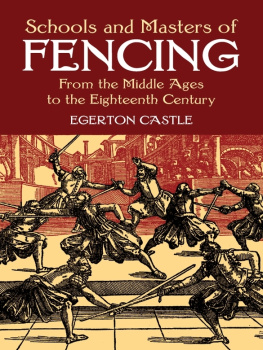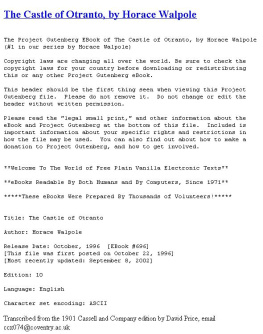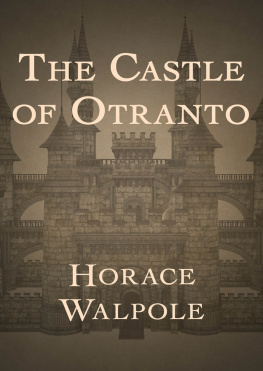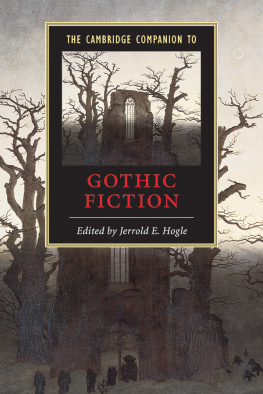Spotlight
Spotlight Books
57 Gloucester Road
CLAPHAM
MK41 6ZS
With honour of the Liam Patel
Online publishing centre.
Published in the UK by Spotlight Books, Clapham.
Spotlight Books 2020
The moral rights of the authors have been asserted
Database right Spotlight Books.
This book is located in the public domain.
All rights reserved. No part of this publication may be reproduced, stored in a retrieval system, or transmitted, in any form or by any means, without the prior permission in writing of Spotlight Books, or as expressly permitted by law, or under terms agreed with the appropriate reprographics rights organization. Enquiries concerning reproduction outside the scope of the above should be sent to the Rights Department, Spotlight Books, at the address above. http://www.spotlightBooks.xyz
You may also visit our contact page for more information regarding supporting the project.
You must not circulate this book in any other binding or cover and you must impose the same condition on any acquirer.
Data available
Ebooked in the UK
ISBN 10: 599891645
ISBN 13: 9780599891647
INTRODUCTION
[ ]
The three novels collected here all belong to the later years of the eighteenth century. The first represents what may be called the last stand of Augustanism before that riot of fancy and imagination, as exemplified by the other two tales, that ushered in the Romantic Revival. Thus in Rasselas we have Johnson, with the fortitude of Atlas, supporting the miseries of the world on his broad shoulders; Horace Walpole shutting us up in his Castle of Otranto, away from reality and all reasonableness; and Beckford, in Vathek, transporting us on his magic carpet to the court of the grandson of Haroun al Raschid, and thence to a region of perdition and eternal fire, where all memory of Augustanism is irretrievably lost.
They are strange company these three books, but they are nevertheless infallible indexes to the taste of their time. The fact that Rasselas in 1759 met with such enormous success and that The Castle of Otranto four years later met with perhaps an equal success, indicates as plainly as anything could that although people had not lost their admiration for Johnson, they were already tiring of good sense and quite willing to give free play to those wilder impulses in their natures that Augustanism had sought to discipline. But this time the tide turned with a vengeance! The grave Wordsworth, a romantic himself, is found deploring the frantic novels of this time, although Shelleys young and fiery imagination seized upon them with avidity, and, in Zastrozzi, he wrote an even more frantic one himself. But it was The Castle of Otranto, written in conscious reaction against the domesticities and sentiment of Richardson, with its plea that the material of the novel could be taken from anything but the events of ordinary life, that opened the gates onto the land of Romance. And in its train came all the rest of the Gothic and terror novelistsClara Reeve, Mrs. Radcliffe, Monk Lewis, Charles Maturinto mention only those who are now chiefly remembered. Vathek, however, stands alone, without predecessors or immediate followers, [viii] belonging to a quite un-English tradition, although the Oriental tale in one shape or another had quite a vogue in the eighteenth centuryif we may include such things as Collinss Persian Eclogues and Goldsmiths Chinaman, or even Rasselas itself, which, at least, has a nominal setting in the East.
Rasselas was written, as every one knows, during the evenings of a week, when Johnson had occasion for thirty pounds on Monday night, as he wrote to the printer on 20 January, 1759. His mother had just died and he sat down in his Gough Square garret to earn the necessary money for her funeral and for paying off the few debts she had left. Her death, we are told, was a great loss to Johnson, and it is wonderful that what he wrote under pressure at that time should be free not only from bitterness but from a complaint of any kind. Melancholy it certainly is, but melancholy with a rare elevation of mind and no more weighed down with thoughta rather foolish charge that is sometimes levelled against itthan is any work that deals profoundly with the major problems of life. It has also been said of Rasselas, with more reason, that it is a test of the readers capacity to appreciate the peculiar qualities of Johnsons thought. These qualities, as any one who takes the trouble to analyse them can see for himself, are a square face to face attitude to life that takes things as they come, realizing the futility of attempting a choice of life, and if without overmuch hope for the future, at least free from the disintegration of high hopes disappointed. There is nothing pedantic or high-flown in this attitude which, with a noble solemnity, enabled Johnson to bear up against all odds and to steer right on. Undeniably there is sustenance to be got from Rasselas. And if its author has certain qualities in common with his own solemn elephant reposing in the shade, they are, one feels, the product of a character that, like Donnes elephant, could hardly be dislodged without the noise and cataclysm of a whole town underminedwhereas much of the style of to-day, which despises what it calls Johnsonese, could be blown away with a puff of wind. What obtuseness there is in Johnsons attitude of mind is due to the qualities that he shared with the giant of beasts, a slow-movingness and an apparent lack of the more intricate nerves of feeling. Compare his prose with its antithesis, that of Donne, who, for all his medieval theology, was more modern in the working of [ix] his mind than Johnson; for whereas the author of Rasselas will bring you surely and by slow degrees to a conclusion, the mind of the author of Deaths Duel and the sermons seems to anticipate all conclusions at once with the rapidity and circuitousness of a thousand ants. Johnson will attack a problem broadside on, and it is to him we come for substantial resistance against life, but to Donne we go for an inward and self-conscious activity that undermines it. Yet one would read Rasselas ten times for every single reading of Donnes sermons, which are as the fire of the spirit consuming.
Taken altogether, then, Rasselas is a prose Vanity of Human Wishes, a disquisition on the limitations of life rather than a novel holding our attention by a sequence of events. How characteristic is the passage on the pyramids! Only Johnson, who kept his head among the Highland mountains, could have written as he does here, summing up, in these two sentences, his whole attitude towards happiness and material possessions:
I consider this mighty structure as a monument of the insufficiency of human enjoyments. A king whose power is unlimited, and whose treasures surmount all real and imaginary wants, is compelled to solace, by the erection of a Pyramid, the satiety of dominion and tastelessness of pleasures, and to amuse the tediousness of declining life by seeing thousands labouring without end, and one stone, for no purpose, laid upon another.
Surely that is magnificent prose, and no one else could have written with just that fine balance and that same elevation of mindunless it was Browne, also pitying the builder of the pyramids in Hydriotaphia.
To pass on to The Castle of Otranto









